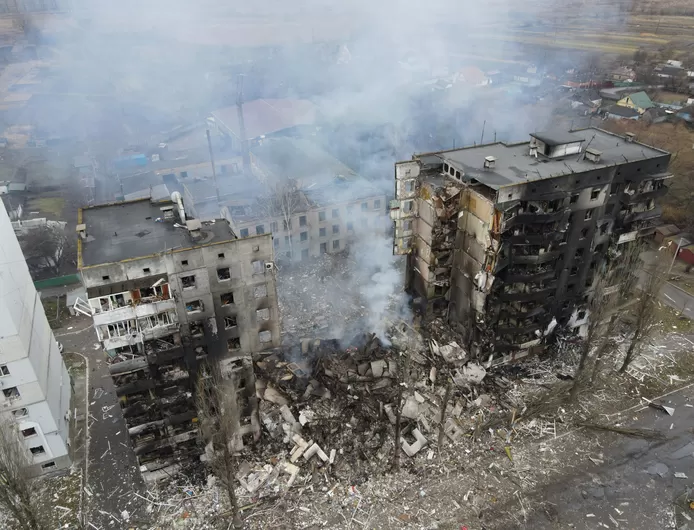The war in Ukraine is not only leading to a huge rise in energy prices, but it could also lead to a global food crisis. That is what the CEO of Yara, the largest fertilizer company in the world, said in an interview with ‘BBC’. “The question is not whether there will be a food crisis, but how big it will be.”
Svein Tore Holsether, the CEO of fertilizer producer Yara International, has expressed concern in an interview with the BBC about the possible impact of the war in Ukraine on the supply and cost of food worldwide. Yara is active in more than 60 countries and mainly obtains essential raw materials for the production of fertilizers from Russia.
“We were already in a difficult situation before the war with rising gas prices, but now there is additional disruption to the supply chains as we approach the most important part of the growing season for the Northern Hemisphere,” said Holsether. “So the moment when a lot of fertilizer has to be transported and will therefore be hindered.”
In Russia, huge amounts of nutrients for crops are produced. About a quarter of what is needed for European food production comes from Russia. “Half of the world’s population gets food thanks to fertilizers, and if this is not available, the yield of many crops will drop by 50 percent,” says Holsether in the interview with ‘BBC’. Since this weekend, Russia has imposed an export ban on fertilizers. To get the latest stories, install our app here.
Catastrophe on top of catastrophe
There is, therefore, a lot of search for alternative sources, but the CEO does not expect much from them in the short term. Also, huge amounts of natural gas are needed to produce ammonia, the main component of nitrogen fertilizers. “Our factories in Europe are largely dependent on Russian gas for this.”
“The question is not whether there will be a food crisis, but how big it will be,” said the CEO.
According to Holsether, the global food production system has already faced enormous challenges from both climate change and population growth. “This war is a catastrophe on top of a catastrophe. We must not forget that 100 million more people have gone to bed hungry in the past two years.” According to Holsether, the war is really worrying for food production.
The Yara CEO tells the BBC that the biggest problem for food production is that the West is so dependent on Russia that this needs to change in the long term.
In the short term, we feel a very strong obligation to keep production going in order to allow the fertilizer to flow to the farmers in order to maintain agricultural yields. “But at the same time, there has to be a strong response. We also condemn the Russian military invasion of Ukraine, so this is a very difficult dilemma.”
“You can’t eat a coat”
Dutchman Kees Huizinga also sounds the alarm. Huizinga has had a large agricultural company in Ukraine for 20 years. He wants to alert leaders in the Netherlands, Germany and Great Britain to the catastrophe that is coming.
According to Huizinga, we are heading for “a global disruption of the food chain.” He told this in the Dutch program ‘Nieuwsuur’. “The war means that Ukrainian farmers cannot sow because of the violence or because they have no access to seeds, fertilizer, fuel or machine parts,” he says. To get the latest stories, install our app here.
“Everyone focuses on energy prices, but the impact on food prices is lost sight of,” says the Dutch farmer. “When you’re cold, you put on a coat, but you can’t eat a coat.” Huizinga says the price for wheat has already risen from $300 to $400.
He also points out that the Middle East and Africa will be hit hard if the situation is not resolved quickly. “If Ukraine cannot export grain, the price for a loaf of bread there will become so expensive that people can no longer afford it,” he concludes.
